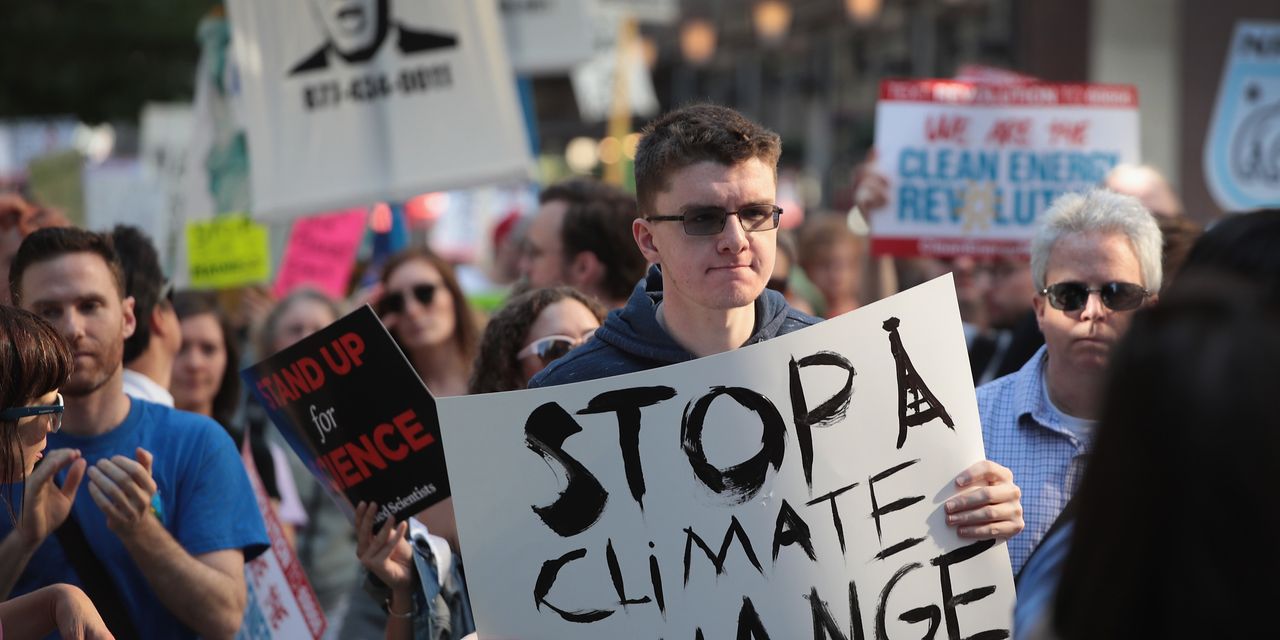Led by the richest carbon-polluting nations, global efforts to slow the Earth’s temperature remain “far behind.” The blame lies both with slow action in the developed world to give up fossil fuels and with select countries who’ve been lax in offering behavior changes at all, the United Nations says.
These “highly inadequate” steps to date mean the window to act is closing, but is not quite shut yet, according to Thursday’s Emissions Gap report from the U.N.’s Environment Programme (UNEP).
“Global and national climate commitments are falling pitifully short,” U.N. Secretary-General Antonio Guterres said Thursday. “We are headed for a global catastrophe.”
The emissions gap discussed in the report is the difference between the amount of carbon pollution being spewed between now and 2030 and the lower levels deemed needed to keep warming to 1.5 or 2 degrees.
“The emissions gap is a by-product of a commitments gap. A promises gap. An action gap,” Guterres said.
The report is the 13th edition in an annual series that provides an overview of the difference between where greenhouse gas (GHG) emissions are predicted to be in 2030 and where they should be to avert the worst impacts of climate change, which has aggravated extreme weather and brought expensive drought, heat waves and new health concerns.
Primarily, the world is weaning itself from fossil fuels too slowly, the report and other experts say. Catching up to the goals requires a 45% emissions reduction by 2030, UNEP officials say.
The G-20 nations, the richest countries, are responsible for 75% of the heat-trapping pollution.
The report shows that updated national pledges since the U.N.’s Conference of Parties, or COP26, in Glasgow last year make a negligible difference to predicted 2030 emissions. And, it says, such efforts are far from the Paris Agreement goal of limiting global warming to well below 2°C, preferably 1.5°C. Policies currently in place point to a 2.8°C temperature rise by the end of the century, a separate report from the U.N’s climate-watch body said Wednesday.
Countries concrete pledges would bring that down to 2.6 degrees (4.7 degrees Fahrenheit). The Earth has already warmed 1.1 degrees (2 degrees Fahrenheit) since pre-industrial times.
The Thursday report provides an in-depth exploration of how to deliver this transformation, looking at the required actions in the electricity supply, industry, transport and buildings sectors, and the food and financial systems.
Both reports hit just days before nations are set to gather at U.N. climate talks in Sharm el Sheikh, Egypt, for the COP27.
And they arrive with the U.K. and Brazil in political turmoil, and with the Russian attack on Ukraine having disrupted global energy markets
NG00,
In fact, Fatih Birol, executive director of the International Energy Agency, the Paris-based organization that represents the world’s largest oil-consuming
CL00,
countries, said this week, “The world is in the middle of its first truly global energy crisis.”
The report did highlight U.S. efforts. Specifically, the $375 billion U.S. climate-heavy spending law passed earlier this year, also known as the Inflation Reduction Act.
The report said that by 2030 the U.S. law should prevent 1 billion metric tons of carbon emissions, which is much more than other nations efforts made this year.
“What we’re calling for is an accelerated pace because there are good things happening out there in a number of countries, but it’s just not fast enough and it’s not consistent enough,”UNEP Executive Director Inger Andersen told The Associated Press.
The energy crisis has some U.S. lawmakers urging for a return to more U.S. oil and gas production, in order to cut dependence on Russia and other potentially geopolitical hotbeds, and to keep down domestic energy costs while Americans struggle with broader inflation. Advocates for alternative energy, such as wind and solar
ICLN,
and in some circles, nuclear, say this approach returns more energy and electric power sourcing closer to home, and thus, less exposed to global swings in supply.



